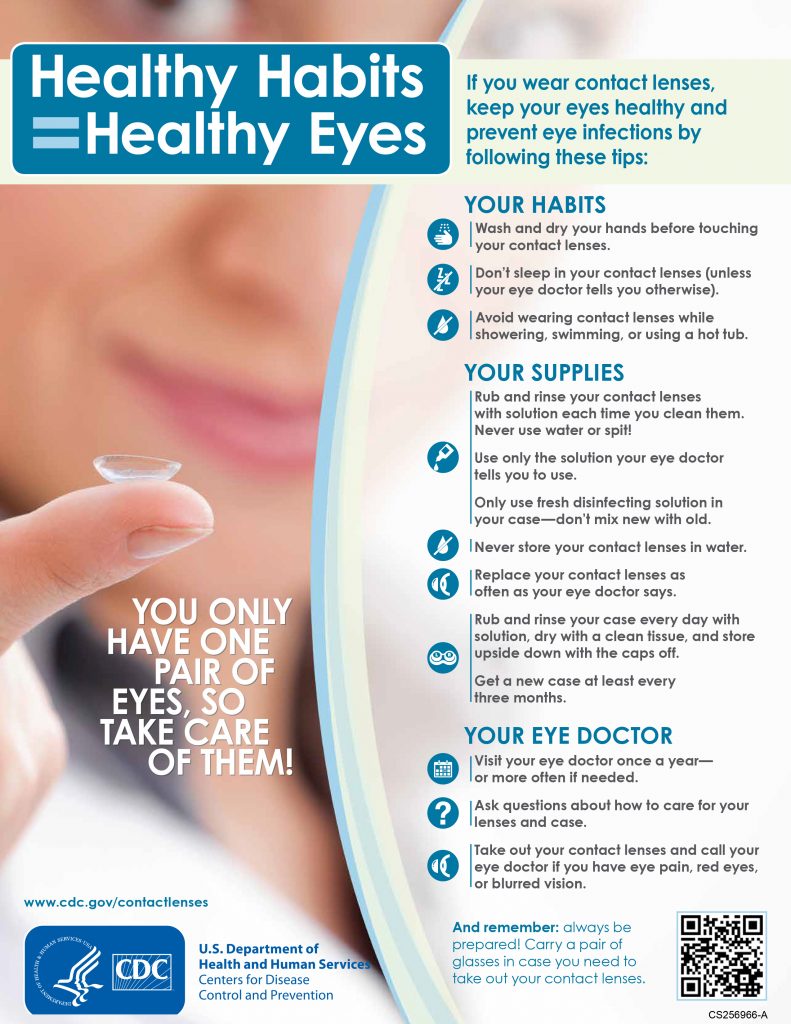HSV (Herpes Simplex Virus) keratitis is an infection of the cornea—the clear dome that covers the colored part of the eye—that is caused by HSV. The infection usually heals without damaging the eye, but more severe infections can lead to scarring of the cornea or blindness. HSV keratitis is a major cause of blindness worldwide. HSV-1, which is the type of HSV that also causes cold sores on the mouth, is the most common cause of corneal infections.
Symptoms:
- Eye pain
- Eye redness
- Blurred vision
- Sensitivity to light
- Watery discharge
If you experience any of these symptoms, remove your contact lenses (if you wear them) and call your eye doctor right away. If left untreated, HSV keratitis can result in vision loss or blindness.
Currently there are no proven methods for preventing HSV keratitis, but some steps available from the Mayo Clinic may help to control HSV keratitis recurrences:
- Avoid touching your eyes or the area around your eyes unless you have washed your hands properly—especially if you have a cold sore or herpes blister.
- Only use eye drops that have been prescribed or recommended by an eye doctor or health care provider.
Follow these tips to keep your eyes healthy while wearing contact lenses. Your daily habits, your contact lenses and supplies, and your eye doctor are all important.






